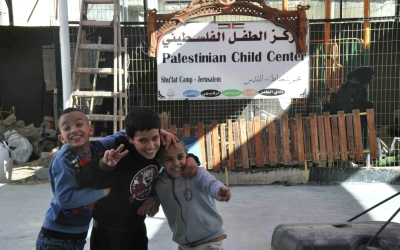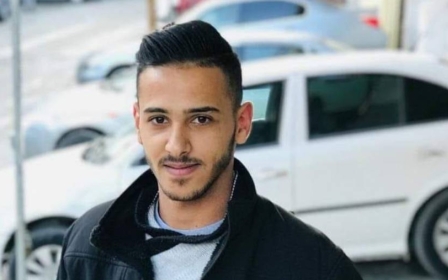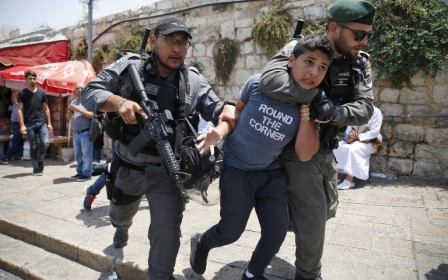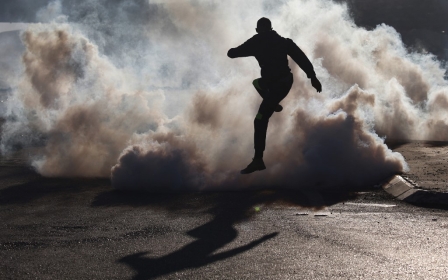Israeli police summon Palestinian father for 4-year-old's alleged stone throwing
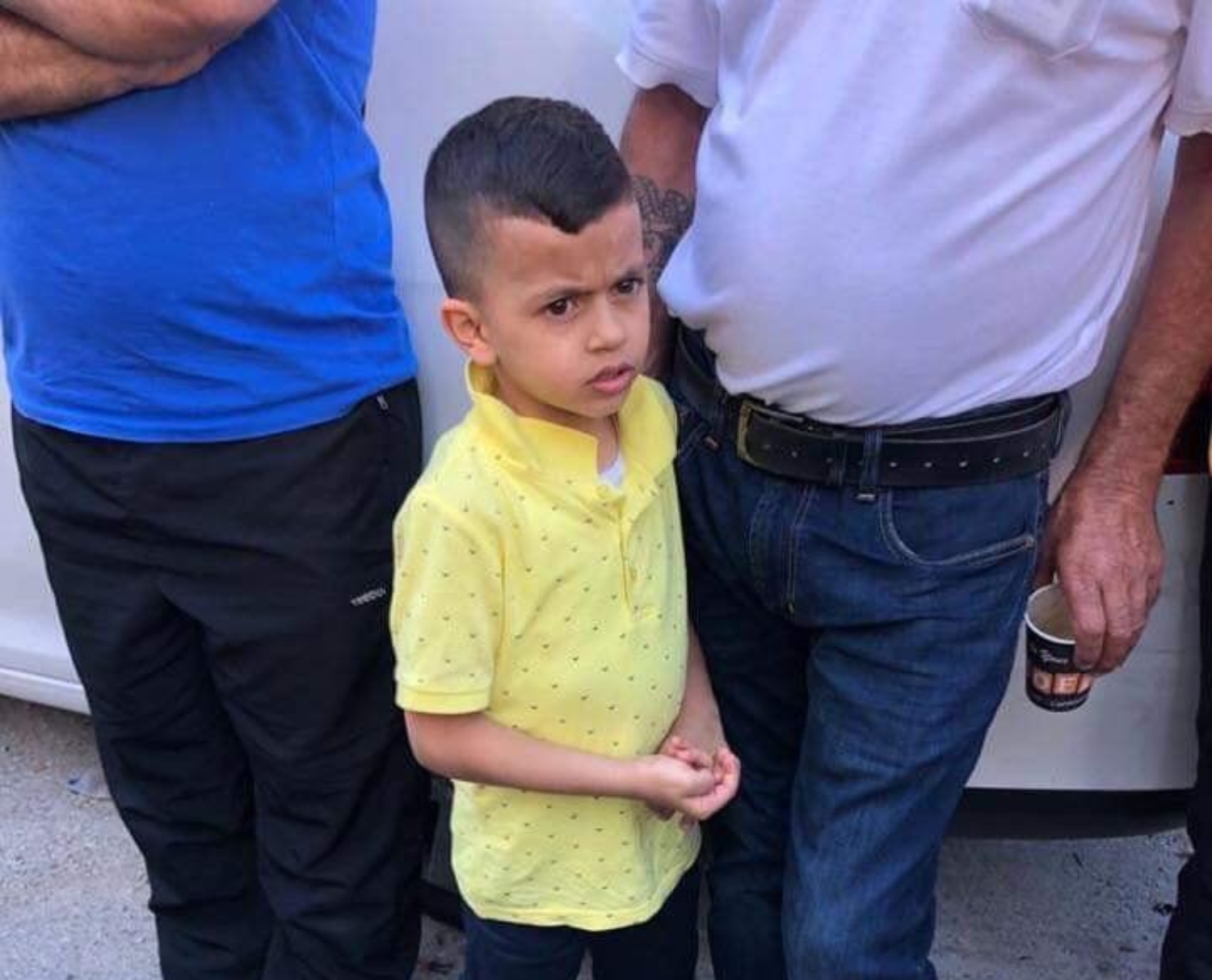
Israeli police summoned a Palestinian man for interrogation on Tuesday, claiming that his four-year old son threw stones at officers.
Israeli forces issued a warrant for interrogation against Rabiaa Elayyan on Monday over his toddler son Mohammad's actions.
The summons has sparked anger in the occupied East Jerusalem village of Issawiya, where the family lives, and where tensions with Israeli forces have been particularly high since June, when police killed 20-year-old Mohammad Samir Obaid.
Mohammad and his father Rabiaa went to the Israeli police station on Salaheddine Street in East Jerusalem on Tuesday morning, accompanied by fellow residents of Issawiya, who came to protest the interrogation.
New MEE newsletter: Jerusalem Dispatch
Sign up to get the latest insights and analysis on Israel-Palestine, alongside Turkey Unpacked and other MEE newsletters
Official Palestinian Authority news agency Wafa reported that Rabiaa Elayyan was briefly interrogated by police without his child present and released shortly thereafter.
Local media reported that the warrant for interrogation was issued in Mohammad's name, but a researcher at Defense for Children International - Palestine (DCIP) told Middle East Eye that the organisation had seen the warrant and confirmed it was addressed to Rabiaa Elayyan.
Speaking to MEE, Rabiaa Elayyan said Mohammad was near the family home on Monday when police approached the house, at which point his son threw stones at the officers.
“They sent a warrant to summon both the father and the son,” Elayyan said, rejecting reports that the warrant had been issued to him alone. “Today, when we went to [the police station], they denied that there was a warrant for the son, and that only the father had been summoned. They saw the media attention and that it would become a scandal for them, so they retracted.”
Elayyan added that during the interrogation at the police station, he was told he “should confine the boy to the house”. “I don’t know if it’s allowed to prevent him from leaving home,” he told MEE.
Israeli police spokesman Micky Rosenfeld told MEE that "a four-year-old boy threw stones at policemen, only his father was summoned" - adding that no police officers were injured by the toddler's stone-throwing.
'They’ve just sent a message of terrorising young children, of making them scared'
- Rabiaa Elayyan
Rosenfeld added that summoning parents for alleged infractions committed by minors was "standard procedure", adding: "It’s an educational process and at the same time community policing to deal with that incident."
Elayyan said Mohammad did not fully understand what was happening, but had become “fearful”, particularly given the crowd and atmosphere on the way to the police station on Tuesday morning.
“The police made a mistake,” he said of the backlash over his son's case. “They’ve just sent a message of terrorising young children, of making them scared.”
“Children have rights, but their normal rights are only a dream, of which they are deprived.”
Jawad Siyam, the director of the Wadi Hilweh Information Centre in East Jerusalem, said the interrogation summons was part of a broader policy to apply pressure to Issawiya, where residents have been protesting against regular raids and arrests by the Israeli army and police, as well as frequent home demolitions.
“It’s a way to put pressure on the family, on the people," he told MEE of Elayyan's interrogation. "They know they cannot arrest them [the children], they cannot put them in jail - but it’s a kind of terror against the children.”
Siyam said Issawiya was under a lot of pressure to stop its acts of protest against Israeli police.
“It’s collective punishment against Issawiya. They want people there to give up to police,” he said. “They [police officials] said very clearly they want police to go and drink coffee in the village... But the fact is that people do not want to welcome the police.
'They think that if they teach [Issawiya residents] how to punish their children, they will also learn'
- Jawad Siyam, Wadi Hilweh Information Centre director
“It will not work. Especially after the killing of Mohammad Obaid, the village exploded much more than before. And still they’ve put pressure, they’ve put checkpoints, tickets, collective punishment. They think that if they teach [Issawiya residents] how to punish their children, they will also learn.”
Palestinian minors accused of criminal offences can be charged under Israeli law as young as 12. Palestinians in the occupied West Bank fall under military law, while Palestinian children in East Jerusalem fall under Israeli civil law - but in either case, children under 12 cannot legally be held accountable for their actions.
However, the DCIP researcher told MEE, there have been numerous incidents of children under the age of 12 being detained or interrogated by Israeli forces - often at checkpoints or inside military jeeps deployed in Palestinian areas. The researcher highlighted that these interrogations often occurred outside of any formal process, making it difficult to accurately quantify the frequency of the phenomenon.
According to Palestinian prisoners’ rights organisation Addameer, some 205 Palestinian minors were imprisoned by Israel as of June.
Middle East Eye delivers independent and unrivalled coverage and analysis of the Middle East, North Africa and beyond. To learn more about republishing this content and the associated fees, please fill out this form. More about MEE can be found here.


